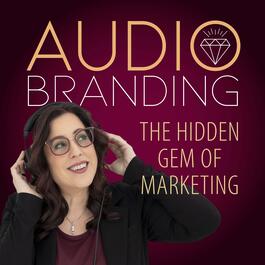
Why Sound Matters in Modern Advertising: A Conversation with Ted “Theo” Rosnick - Part 2
“If it’s stock music, unless you’re paying, like, some libraries have exclusivity, but most of them don’t. So that’s what I always say to clients, like stock music. You might hear that Joe’s ice cream shop also has the same music that you have. And you’re Chrysler – I keep saying Chrysler, but whatever, a big brand. A good example of an audio branding that we did was the Rogers. That was huge, and when we first did that, it was for a very close friend of mine, Philippe Garneau, and Mark’s brother, the astronaut, and he came to me, and he had the Rogers account. He said, ‘We want a mnemonic on the end of the spot, but we’re only going to use it for three commercials.’ And so they lost the business, and Rogers loved that mnemonic.” – Ted “Theo” Rosnick This episode is the second half of my conversation with music and audio director/producer Ted Rosnick, as we discuss the use of AI, especially digital voice clones, in advertising, the impact of the SAG-AFTRA strike, and the unwritten rule voice artists follow when it comes to branding. As always, if you have questions for my guest, you’re welcome to reach out through the links in the show notes. If you have questions for me, visit audiobrandingpodcast.com, where you’ll find a lot of ways to get in touch. Plus, subscribing to the newsletter will let you know when the new podcasts are available, along with other interesting bits of audio-related news. And if you’re getting some value from listening, the best ways to show your support are to share this podcast with a friend and leave an honest review. Both those things really help, and I’d love to feature your review on future podcasts. You can leave one either in written or in voice format from the podcast’s main page. I would so appreciate that. (0:00:00) - Evolution of Music Production and AI The second half of our conversation starts with Ted’s perspective on advertising in the 21st century, and one early trend that marked a turning point. “One of the main things I remember changing a lot was when Napster came along,” he recalls. “People could download a hundred songs in an hour, and I noticed it was, all of a sudden, we were expected to do seven or eight demos, because that’s what they were used to, like, pulling music down all night long and hearing their stuff.” We talk about digital studios and sound design, and how AI voice cloning has transformed the industry, including a recent commercial campaign that featured a synthetic likeness of a human actor. “We asked his permission,” Ted tells us, “and so we AI’d his voice, and it worked out really well. Nobody would know. I know the difference because I just know, but you wouldn’t know the difference.” (0:10:42) - The Impact of AI on Creativity Ted tells us about his experience with AI-assisted brainstorming and its limitations as a content writer. “I’ve written them and then thrown them into ChatGTP,” he explains, “and then said, ‘Can you just make it a little warmer?’ But the truth of the matter is that I’ve always gone back to my own, because I don’t think it’s as warm as or as good as what’s in here, you know.” We discuss what sets human and AI creativity apart, and how what makes a work human often comes down to the very things AI would try to fix. “A lot of it is that human subtleties are mistakes,” he tells us. “When you start tearing it down for the mix, you hear all sorts of mistakes. They’re not glaring mistakes that are going to ruin it, but they’re not perfect, and that’s what makes it human. And that’s what makes it great.” (0:23:10) - The World of Audio Branding Our conversation closes with some of Ted’s most...
From "Audio Branding"


Comments
Add comment Feedback